4X (abbreviation of Explore, Expand, Exploit, Exterminate) is a subgenre of strategy-based computer and board games, and include both turn-based and real-time strategy titles. The gameplay involves building an empire. Emphasis is placed upon economic and technological development, as well as a range of military and non-military routes to supremacy.
In this article, Gurugamer is going to showcase the top 6 best 4X games to play in 2022.
1. Stellaris
Stellaris itself is a semi-realtime strategic simulator, where you take a fledgling planet and turn it into a sprawling galactic empire... or more likely die trying. You control literally every aspect of your empire: how your government is set up, where your pops live, how they're treated, what they research, what planets they colonize, and how you deal with the galaxy around you. There are some automated aspects when it comes to ship design & planet/sector management, but these are almost always less efficient than player-controlled choices, and thus are best given as little automation as possible.
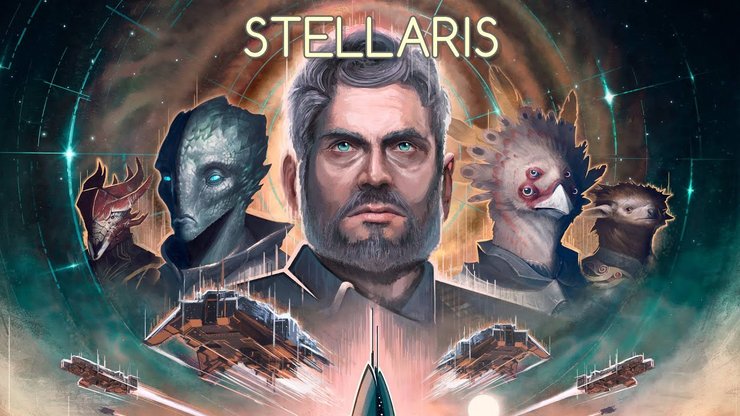
With that said, there's a massive amount of information constantly being thrown at the player throughout the game, even enough to make veterans stumble from time to time. The tutorial by itself is insufficient in preparing the player for the full burdens of managing an empire all on their own, especially when dealing with the hidden interactions between traits, ethics, & research specialties, and thus an extensive reading of the wiki is highly recommended.
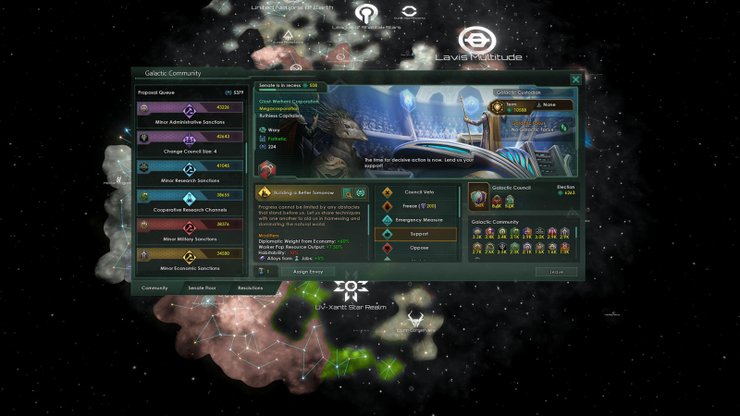
The AI itself is at times odd, and predictably unpredictable. Everyone has different views regarding the AI, with personal skill and playstyle usually weighing heavily on their opinions. From personal experience, the AI can be compared to an early-mid tier player, depending on difficulty modifiers. They can utilize basic functionality like colonizing planets, utilizing relationships/trading, building fleets, etc, but they tend to have glaring issues that can be exploited. Specifically, they tend to have issues creating & maintaining their economy, leaning more towards early gains for later losses, and panic spam specific structures when certain resources start running low.
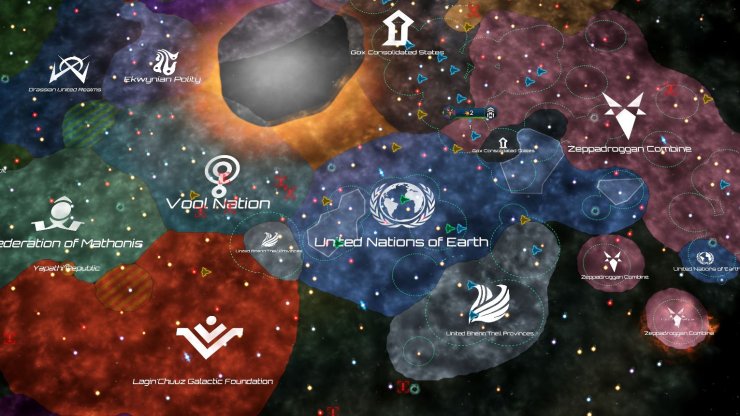
Grand Admiral difficulty can absolutely wreck all but the strongest builds, and a mega federation can easily end a game, no matter how strong you are. Make no mistake, there will always be a challenging difficulty for all players. With that said, it's perfectly acceptable to find and stop at one that you find both challenging & enjoyable. For me, it's a 2300-2350 scaling Admiral game on a small galaxy, with 0.25 planet spawns and 0.5 hyperlane density. Your mileage may vary, as there are much, much bigger galaxy sizes to choose from... provided you have the time & energy to complete them.
2. Polytopia
Polytopia fills a niche I'm not sure any other game does: it's a 4X game like Civ, but it's minimalist---its rules are very simple, but still leave lots of room for strategy and tactics. It runs on super low-spec machines, too. It's like Civilization, but bite-sized. Everything is scaled down. No real save/load system to speak of, but you can usually finish a game in one sitting, so doesn't matter.
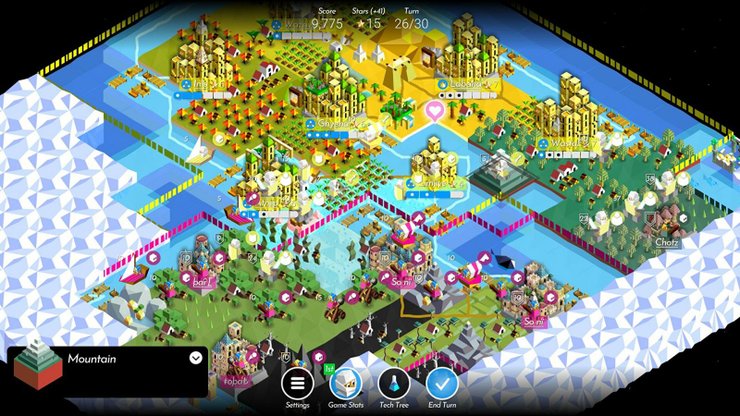
The single player experience is not what you buy this game for. Honestly, it's okay but I would rather play Civilization against bots. The multiplayer is where it shines. Since you have to wait for each player to take their turn in a multiplayer game, a game with more than 2 people will easily last days or weeks. For this, I feel like a mobile app is better. You can receive a notification for when it's your turn, open the app, and play it. The only way multiplayer really works on this is if you play against 1 other person with 5 minute turn limits, or play against a group of friends that you are in voice chat with. That being said, I think that would be a fine way to play the game, and I enjoyed a 1v1 match using random matchmaking.
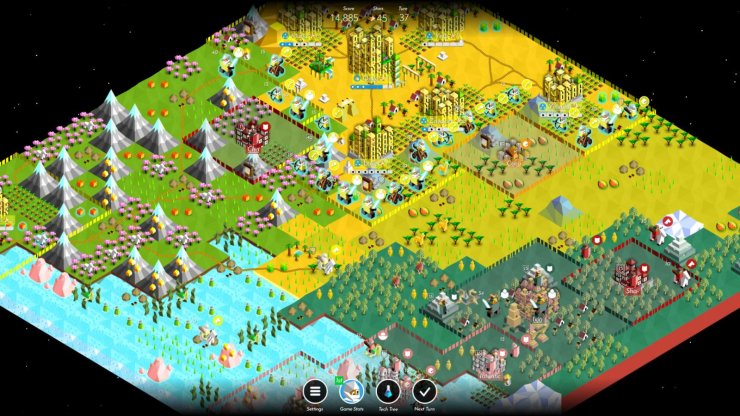
Creative mode is a nice addition to the desktop game, I like that you can change the number of tribes and size of the map independently (you cannot on mobile). Also, the water settings for the map are pretty cool, especially for ocean battles on giant maps and such. However, I don't know why I can't add bots to a multiplayer game like I can on mobile. This was one of my favorite features that didn't make it to the desktop.
3. Sid Meier's Civilization VI
Civ 6 is a good game. It had a rocky start, but the devs managed to iron out all the kinks and now it's a fine addition to the series.
Firstly, there is a massive pool of civs to choose from (46 leaders and almost as many civs!). There is more unique stuff for each civ, with a special perk coming from both the civ AND the leader in addition to two (sometimes more) unique "things" (units, improvements, buildings, etc). Makes for a ton of stuff to see and use.
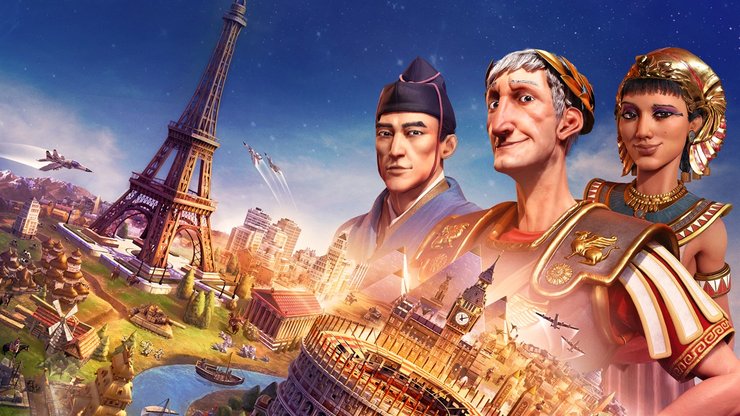
Diplomacy has gotten some really good improvements and refinements. Lots of casus bellis (reasons for war) give you many ways to wage war and take cities without the world treating you like the damn Devil himself for the rest of the game. Several different alliance types allow you to choose the kind of buffs you want. Personality traits for civs that reveal over the course of the game, some of them randomized, so you are not (usually) universally loved or hated. The world congress is pretty interesting and makes the Diplomatic Victory fairly different from other types.
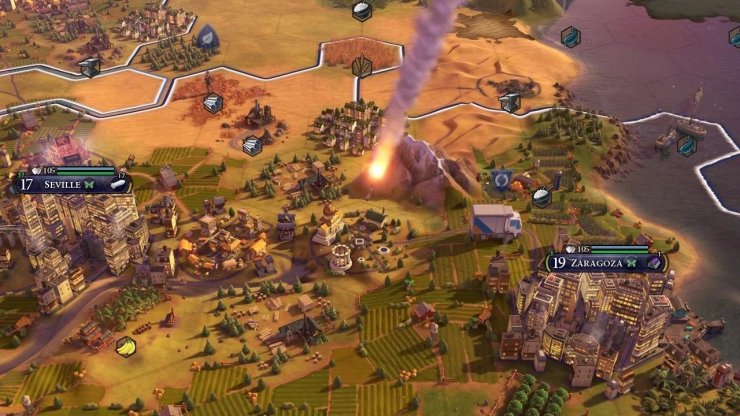
Government system has also been improved. Like with the amount of civs and leaders, the sheer number of options here adds to the variety that is probably Civ 6's greatest strength. A card system with different categories that allows a lot of fine-tuning and frequent switching of buffs to whatever your current short-term and long-term goals are.
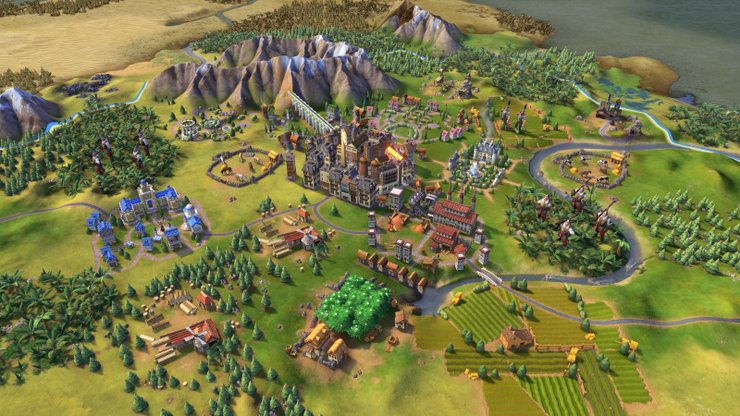
Great people have been turned into unique versions where no two Great Engineers/Scientists/etc are the same. This might be my favorite change from V to VI. It makes for more interesting buffs, especially when you are obtaining many of the same types of great people. Some even give you things separate from their type (a great general giving you a relic for faith and tourism, a great scientist giving you faith buffs)
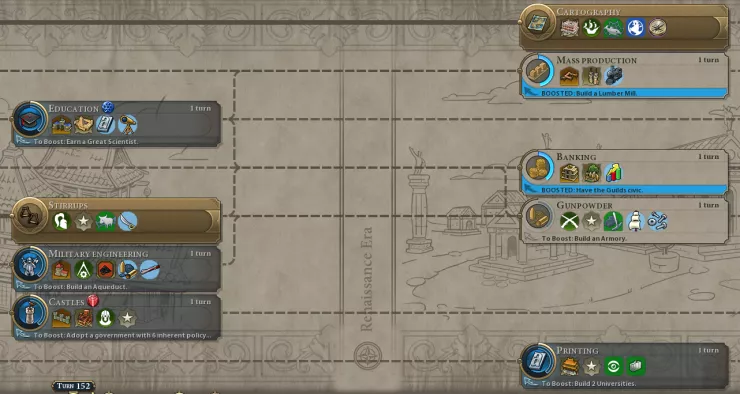
City-states are also now completely unique. There are still general types like scientific and religious, but now each and everyone has a different suzerain bonus. Buffs from anything to various trade route bonuses to unique military units to adding the ability for your religious units to earn you science.
4. Endless Legends
Gameplay-wise, Endless Legend is 4X turn-based strategy with tactical battles and some RPG elements. The main focus is strategy, particularly expanding your empire and developing your cities. As the cities control the whole regions they are built in, and as expansion is limited in early game (partially due to increasing disapproval among your citizens if you expand too much, and partially due to high for early game settler cost), you have to plan which regions to colonize first. And as your cities’ population grows, you can build up your cities, visibly expanding them from small settlements into megapolises that cover entire regions they are in.
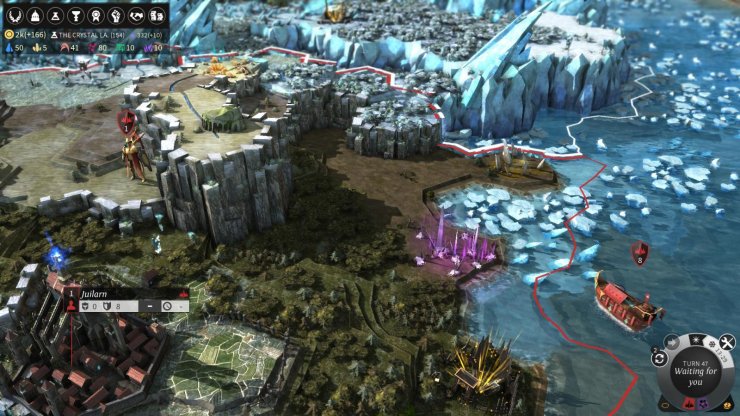
Tactical combat isn’t as good as in some other games that focus more on it, but still decent enough. An interesting aspect of it is that while units act in turn in combat, all orders are given at the beginning of each combat turn, without knowing how enemies will act, which can make combat unpredictable. Whether it is a good or bad thing depends on whether you enjoy an extra challenge or get frustrated by the randomness of battles. If you don’t want to engage in a tactical battle, the game allows automatic resolution for all battles, often with quite satisfactory results.
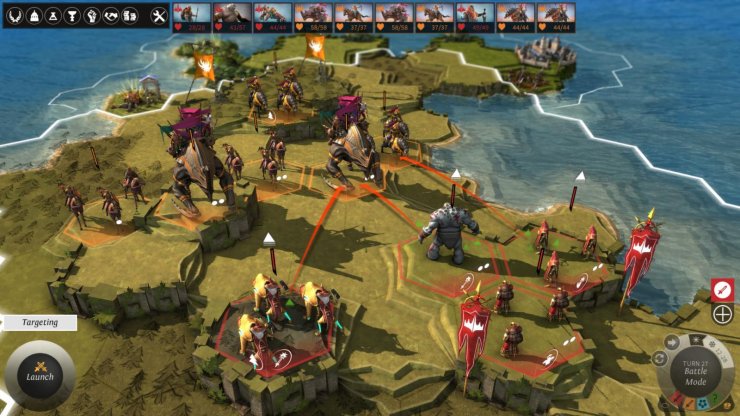
And finally, as for RPG elements, Endless Legend allows you to recruit heroes from a very large list that can either serve as cities’ governors or command armies (and in addition to granting bonuses to an army, fighting in combat themselves as well). As might be expected, the heroes level up as they fight or govern cities, increasing not only their combat stats but allowing you to choose their level-up bonuses, with each faction’s heroes having a unique set of skills to choose from.
I fully recommend Endless Legend to anyone who likes 4X turn-based strategies or wants to give this genre a try, especially if they want to enjoy a pretty good story to go with the game.
5. Shadow Empire
I have played a LOT of 4x over the years, all the heavy hitters. The modern ones (Civ, Stellaris, Endless Space) and their clones feel just...derivative. They follow a framework, you eventually start to see that framework, and the suspension of disbelief dies. The games get boring, there's no "strategy" involved anymore, you know what needs to get done to win.
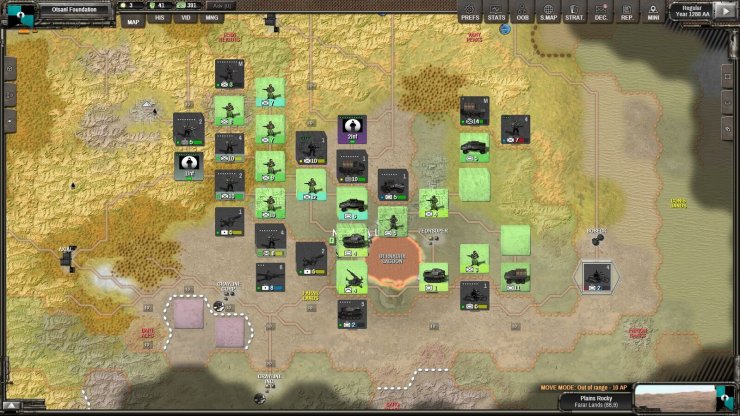
Not so with Shadow Empire. This game is addictive, it is deep, and it is brutally unforgiving. The logistics layer, once you understand it, becomes the beating heart of an empire - which a wandering pack of alien elephants can stab fatally by crossing your dirt road and cutting off supply to your offensive front against a major power. The UI is barely a step above dwarf fortress and comes with a 365 page manual to understand what's going on. That's going to scare a lot of people off in 2020.
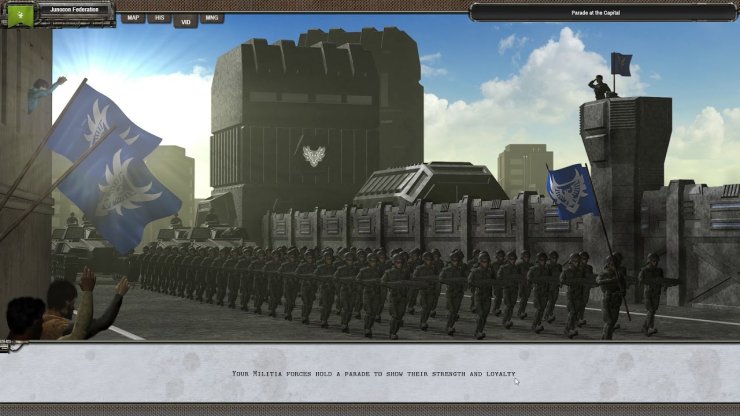
Visually, yeah, the game looks like it's from 1997. And you know what, the mechanics are a throwback to that golden age so I don't even care. Thematically, this is George Millers Civilization, with a dash of Emperor of the Fading Suns thrown in for those of you old enough to remember that gem.
6. Warhammer 40,000: Gladius - Relics of War
Warhammer 40K: Gladius is a 4X turn-based strategy game similar to Civilization, set in the Warhammer 40K universe, where different factions will fight over control of a planet. You’ll need to explore a randomly generated map, create and upgrade cities, and train armies to fight other factions while managing a few types of resources.
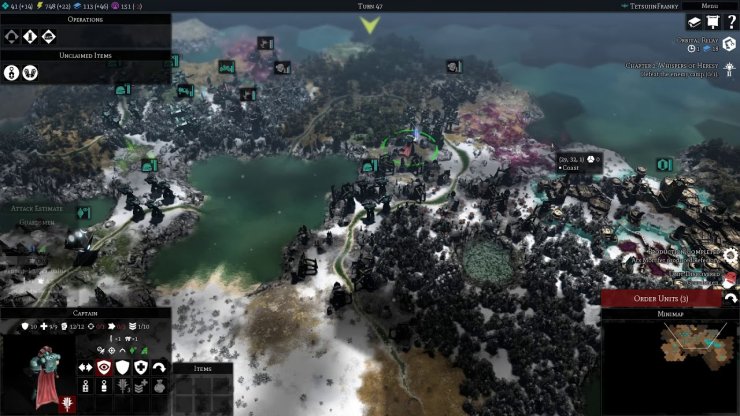
Each faction has a different playing style, for example, Space Marines can only build one city but it quickly grows to a massive size, Necron units can heal quicker to stay in the fight longer, while the Orks build up a Waaagh! meter as they attack enemies, which increases damage dealt.
Construct various buildings within your cities to generate different resources, including minerals to produce units and buildings, research points to unlock more powerful units and tech upgrades, and every building needs energy to function. A city’s population determines how many buildings can be active, but a high population causes disloyalty which reduces how much of the other resources are gathered.
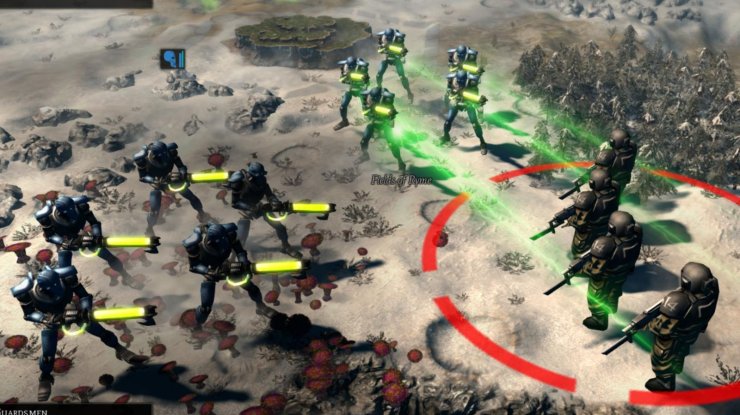
Each tile has a bonus to the production of specific resources based on the terrain type. You can choose which tiles to place each building on to maximize production, and you can spend influence points to acquire more tiles. Resources are managed on a faction level instead of each city being separate, which means that one city which specializes in the production of a particular resource can compensate for another city having a shortage.
>>> Read more: Top 4 Best Turn-Based Strategy Games On PC In 2022
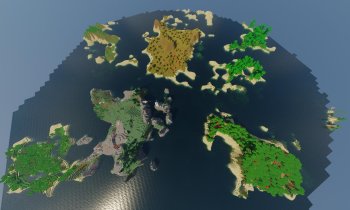









Comments